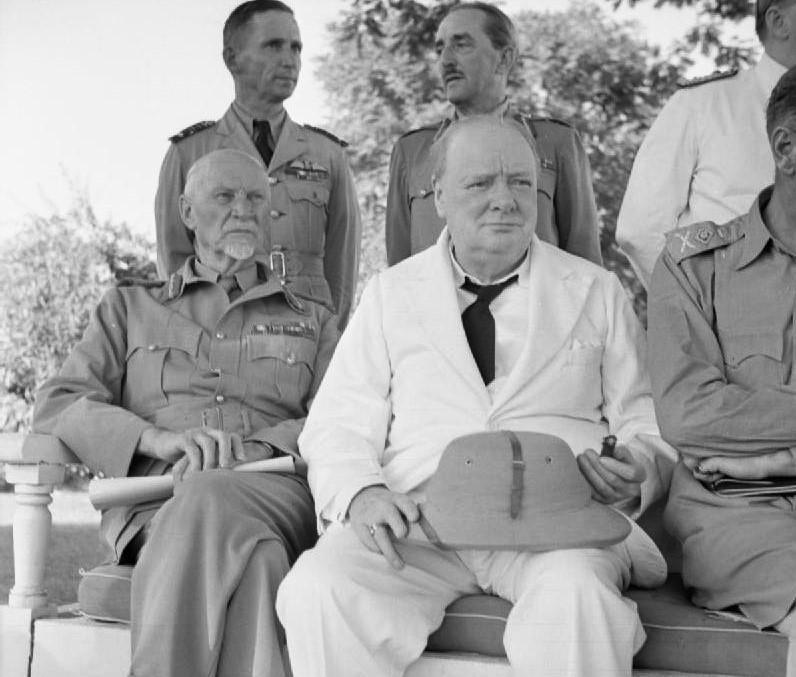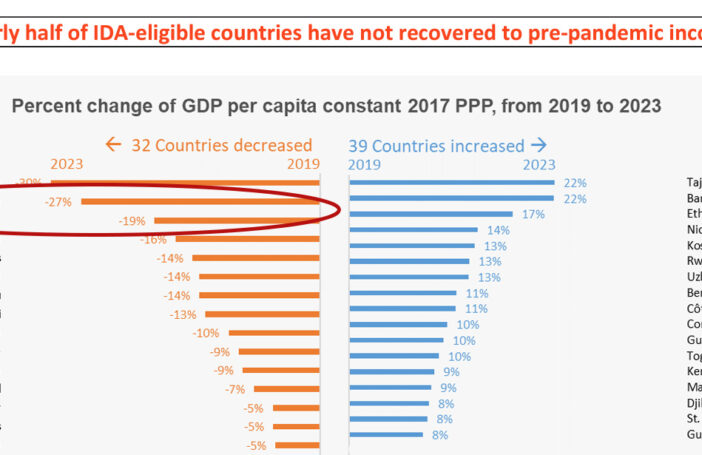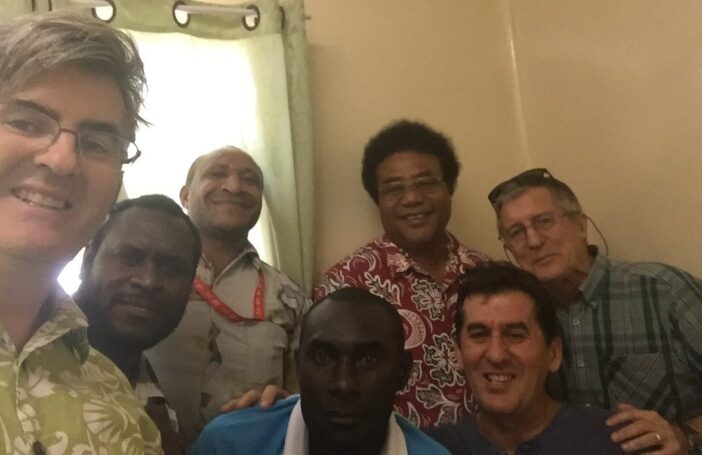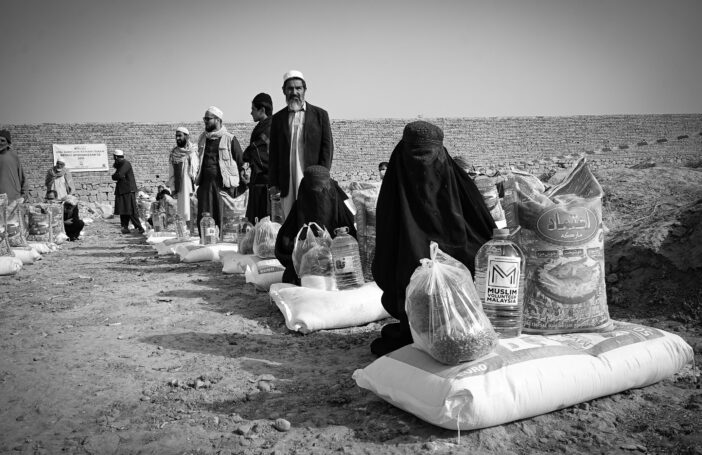Long ago, in a country many miles from where I currently sit, I worked on an aid project. It has stuck with me over the years: a suite of lessons about what can go wrong with aid. Some of the problems were huge. Some were more human in scale. The person I reported to, for example. He was energetic and smart, and simultaneously a relic of a by-gone era.
When he spoke to people from the country we were working in he often sounded arrogant. Worse, he showed no interest in what his local counterparts knew. There were times when I used to look at him and think, “buddy, all you need is a pith helmet”.
I was reminded of this man last year when someone told me aid was “neo-colonial”. The idea is common in parts of academia. And complaints about colonial traits were some of the scattered shots taken at aid in a recent scattershot New York Times Op-Ed.
As with other accusations levelled at aid (neoliberalism, for example), what people mean when they say ‘neo-colonial’ or ‘colonial’ isn’t always clear. Usually though, neo-colonial refers to one of two, potentially related, problems with aid.
The first fits with the dictionary definition of neo-colonial: aid is neo-colonial because it’s used to subjugate recipients, while donors profit from the power they gain.
The second pertains to a subtler power imbalance. International aid workers are neo-colonial because – like the colonial administrators of yore – they’re too taken with their own ideas, and don’t appreciate the knowledge of people in the countries where they work. Worse still, they are unwilling to hand power over to local actors, and let locals use aid as they see fit.
Both of these accusations aren’t entirely wrong. But they’re not entirely right either.
At times, government aid has been part of a neo-colonial dynamic of the first sort. The relationship between the United States and Latin American countries provides examples of this. But for most donors, most of the time, aid doesn’t afford enough power for quasi-colonial subjugation to occur. Donor power increases when recipients face economic crises, yet these moments are rare. Otherwise, donors simply don’t give enough aid to gain much leverage. In 2018, aid from all OECD DAC donors to the median aid recipient country was just 1.27% of its Gross National Income. Even in the Americas, the United States’ influence never came from aid alone: it required the CIA, military, diplomats, and allied local elites.
Aid doesn’t build neo-colonial relationships in the classic sense. Government aid donors do – too often – pursue their own national interest when giving aid. Aid is worse as a result. But pursuit of the national interest usually involves procuring international alliances, and subsidising donors’ firms, not subjugating other states.
The second accusation is clearly sometimes true, as my former colleague Pith Hat demonstrated. But even his story wasn’t that simple. He’d stumbled into the role; he wasn’t an experienced aid worker. The actual aid workers involved in the project were usually different. They weren’t perfect: like me, they possessed human flaws. But they didn’t behave like viceroys. The project wasn’t solely staffed by international staff either, and it was run in collaboration with a local organisation. It’s true, the donor hadn’t just handed money to the recipient and butted out, which is what the New York Times Op-Ed argues for. Sometimes this is an excellent idea. But it isn’t always. This project was large. It spanned multiple levels of government, and local communities. At every level there was a risk that local elites would tap into the project for their own ends. That may sound harsh. But it’s also true of elites in my home country. Without checks and balances, power consumes money. In aid, sometimes this means donors need to be actively involved.
At its worst, aid does seem maddeningly colonial. But the semblance isn’t everything. Often aid isn’t that bad. And when it is, the real issues are usually different.
In the case of the project I worked on, the biggest problem was a donor country with geostrategic goals. As a result, it was desperate that aid didn’t rock the political boat. The trouble was, productive political engagement was needed if the real problems we were meant to be helping with were ever going to be addressed.
Some of the staff were also – obviously – not fit for their roles. Yet as I said, most were good. But they were also time-pressured and called on to do too much. This meant nothing – including respectful relationships with local counterparts – got the attention it needed. Learning systems were threadbare too. As a result, problems got to hide in plain sight, while the project never became any wiser or better designed.
These aren’t very exciting woes. I couldn’t write an Op-Ed about them. But such is the complexity of aid and its faults. Seeing these faults for what they are is important. Because some aid is much better than the project I worked on. Sometimes it really helps. And that’s the change we should be pushing for.





Ultimately the bigger picture is being missed here.
As a colonised state, the people have been historically oppressed and it is written within their culture to hold the coloniser in a position of power. The fact they come and continue to ‘save’ them only depends that feeling of oppression. It excels the feeling that Eurocentric culture and behaviour are superior and to be looked up to, and ignores the confidence needed by the colonised to help themselves again. Only people of the land know what’s best for it, sadly colonisation sent most countries back hundreds of years in this regard.
The problem with the colonisers is that deep down they often think their actions have benefitted the country they colonised in some way. Sadly their behaviour sent every place on earth that they invaded back by hundreds of years, actively contributing to the ruination of our planet and climate change.
To think that the same people can return to these countries and impose views again under the guise of aid, shows how little everyone has learnt.
Please think more deeply about what on earth a white man is doing in an African country and what right he has to do that, considering the legacy of his peoples in that country.
Terence, I’ve always found your work very insightful, and this is no different. However, I think we have advanced much further than government aid donors pursuing their own national interest when giving aid. Indeed, it is expected and increasingly necessary to advance national interests abroad to justify it to the weary domestic taxpayer. From my perspective, the politicalisation of aid that followed the merging of aid agencies into diplomatic agencies has had positive and negative impacts. While it is promising to see funds being directed more strategically, I fear that the sudden leap to institutional capacity building (and the associated right to imbed donors into foreign ministries) has outpaced or under-delivered in individual capacity building. The focus on economic growth must be accompanied by training and education initiatives, otherwise we truly are neocolonists perpetrating a cycle of dependency.
I appreciate your work.
Hi SH,
Thank you for your kind comments, and cogent disagreement.
All of your points make sense, but I disagree – respectfully – in a few areas.
On donor national interest, there is considerable variation between donor countries in the ethos motivating their aid giving, as well as variation in individual donors over time. For this reason, alongside the consequences for developing countries, I think its always worth critiquing aid given in the national interest, and always worth pushing for a more humanitarian approach.
When it comes to winning over taxpayers, our public opinion work from Australia and NZ has found most people seem to want aid given on ethical grounds or, at the very worst, for the sake of enlightened national interest (we should help other countries because it makes the world a safer place, type arguments).
Being a political scientist, I’m an institutionalist. I also think institutions function the way they do because of incentives and norms, and major problems do not usually stem from low staff capacity. Having said that, I also think that aid actors may not easily be able to change incentives and norms in institutions in other countries. Given this, I appreciate that individual capacity building can, in certain instances, be useful and better than other available approaches, although we shouldn’t simply assume that problems stem from low individual capacity. Aid actors should look, listen and get to know a place, or an institution, before designing projects. My guess is that this is a view you and I probably share.
As I said, these are respectfully held differences, and I also see the sense in much of what you say.
Thanks again for a good, interesting comment.
Terence
As one of those who says that overall, aid IS colonial, I take issue with the comment that “donors simply don’t give enough aid to gain much leverage.” Granted, they don’t give a lot. But much of it is thinly-disguised bribes (per-diem payments, consulting fees, electronics, motorbikes and cellphones “to help you do your job”…) to government officials, in return for permission to operate in that country.
Bribes, in the cases I’ve been able to find, typically influence amounts roughly 10 to 100 times bigger than the bribe itself. That’s considerable influence.
Furthermore, officials who keep their eyes on how to get some of the money, rather than figuring out what’s best for their country, represent another negative influence, even if they never get the money.
Hi Sasha,
Thank you for an interesting comment. Your and my experiences of the world of aid have been different. While I’ve seen, and written about, problems, in my experience aid donors are not so routinely corrupt. Local officials are not so easily swayed either — many have, in my experience, displayed an admirable commitment to their work. However, you and I have no doubt worked in different countries and with different donors. And I my experiences are limited enough that I cannot claim with complete confidence that they are representative.
I do agree, as I said in the post, that government donors to often use aid to advance their own interests. And I think your point that aid may have a multiplier attempt when targeted at elites that leads to its influence being greater than aid/GNI might suggest is a great one. However, even so, I don’t think aid’s influence often translates to outright exploitation and subjugation (definition 1 of neocolonial). There are two reasons why I don’t think this is the case. (1) Even corrupt elites have to answer to their own populations to some extent. And selling out this much will likely cost them more than the odd bribe will gain for them; (2) the best available evidence suggests that aid in aggregate has positive effects on GDP, governance and human development in recipient countries. This seems an unlikely outcome from a consistently neocolonial enterprise in the first sense of the term.
Thanks again for an interesting comment and for sharing your experiences.
Terence
Sasha nailed this set of realities
Development partners have very strong feelings about the role and treatment of women and they do not hesitate to use their aid to drive that agenda. Many would defend this “neo-colonial” approach as the right thing to do. At the same time donors are very happy to quietly work with hereditary chiefs in the Pacific, for example, to implement their projects while they would never support hereditary leadership in their own countries. Which approach is right? Deferring to local sensibilities or imposing dramatic change that they think is proper?
Hi Bill,
Thank you for an excellent comment. I like how you’ve used the contradictory behaviour to shine a light on potential issues with aid.
In a practical sense, I don’t think donors manage to achieve much directly through their attempts at imposing women’s empowerment on aid recipients. Or at least, I don’t think their efforts in this area wouldn’t get far were it not for the fact that women in the countries in question support at least some aspects of empowerment, and for the fact that there are often very committed domestic actors keen to take up the cause. Aid likely contributes to positive change on gender-related matters, and is very worthwhile in that sense, but I don’t think external actors would often get far in imposing norm shifts from the outside if they had no support from within aid recipient countries.
Ethically, I do not think that trying to impose change from without is wrong, or neocolonial per se. If aid actors succeeded in compelling the military in Myanmar to stop repressing their own people and introduce real democracy, this would be a good act, and would hardly seem colonial in any sense.
Similarly, I don’t think it’s inherently wrong to work with existing social structures in a country — hereditary chiefs for example — if that’s the best way to improve people’s lives, in a rural agricultural scheme for example. As aid actors aren’t omnipotent, it seems reasonable that they be pragmatic, as long as they are genuinely trying to help, and not being blinded by their own bright ideas.
Thanks again for a good comment, it was great to have chance to think this one through.
Terence
I love a lot of Wood’s writings and other articles but this one I think was whipped together too quickly. Neocolonialism isn’t just about subjugation in that first instance. The dictionary definition he refers to even mentions that neocolonialism also concerns power and exploitation. GNI percentages don’t even need to register for power and exploitation to occur in aid flows: these dynamics are already in huge potential when a tourist pulls out a $50 bill, whether there is any intention to ‘subjugate’ or not.
“Even in the Americas,” tiny amounts of aid money ( we could say both types, “aid” and actual aid) in many communities and many nations sponsored insidious ideas and individuals in ways that have had massive (and often terrible) consequences for the local populace but which served political, economic and other interests or ideas of those from the donor end. Sometimes even with good intention! These were exercises in power, in exploitation, and/or paternalism. Neoliberal ideas are certainly intertwined particularly with the example of the Americas, but it is all still very much neocolonialism.
Hi Ai,
Thank you for a great, thought-provoking comment.
I think you may be right that subjugation is too high a bar. I would happily settle on a definition along the lines of: aid is neocolonial when it affords donors significant power which they then use to consistently exploit recipients.
I do think, however, that — with my caveat about aid during economic crises — aid as a share of recipient GNI provides a useful guide as to the ability of a donor to effect power over a recipient country. Except during crises it is hard to see how a small amount of funding could be used as a lever to get a recipient government to change a policy, such that the replacement policy led to meaningful exploitation of the country in question.
I can think of exceptions, but these would usually require some additional ingredient — for example, situations in which elites in the recipient country themselves will profit from from the same exploitation. The exceptions are not trivial, particularly at the level of the community, rather than the nation state — Honduras provides us with some sad, recent examples — but I think they are the exception, rather than the norm in aid giving.
As I make clear in the post, the norm in aid giving is still flawed, but I think it can be best described, and hopefully one day rectified, if it is seen for what it is, rather than neo-colonialism.
Thank you again for an excellent comment.
Terence
Thanks Terence, I found this very insightful.
Working on a few Australian aid projects in PNG, in the past 2 years, I’ve seen many aid workers who are both keen to work with locals actors, and hear our insight. This makes me hopeful that at least in some places, the approach to how aid is administered is changing – it’s more effective (in my opinion) to adopt a searcher approach, to borrow from Easterly.
I was also wondering if the donor power you mention extends to aid being used to influence recipient country votes at the UN?
Hi Maho,
Thank you for sharing some of what you’ve experienced, and also how it’s shaped your perspectives on aid.
It’s a great question too regarding aid being used to procure support at the UN. There is good empirical evidence that this does occur. It’s frustrating, and an example of the sort of flaw that is too common in foreign aid.
I don’t think it’s neo-colonial though, in that the procurement of votes does not subsequently lead to the economic exploitation of the aid-recipient country(s) in question.
Thanks again for an excellent comment.
Terence